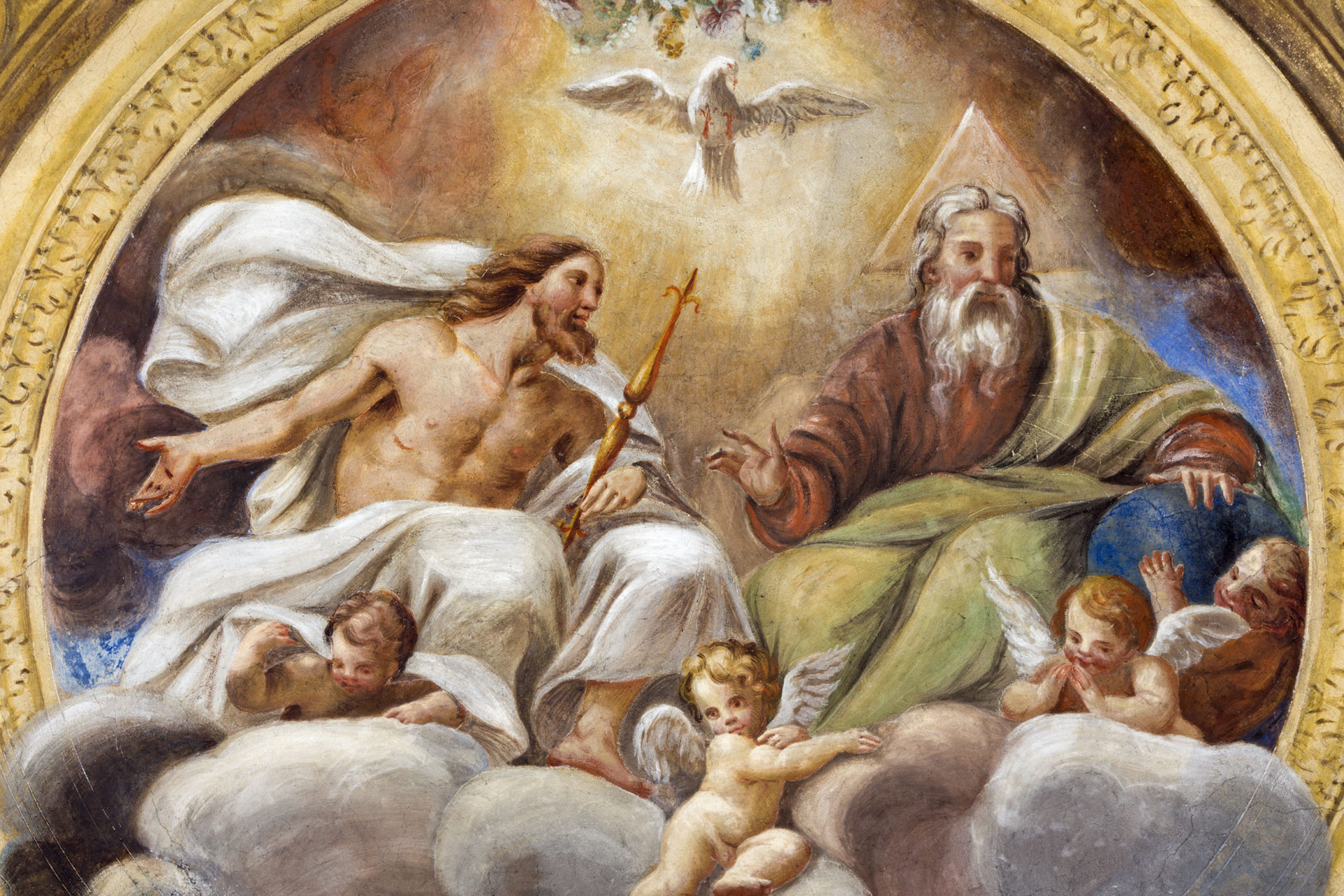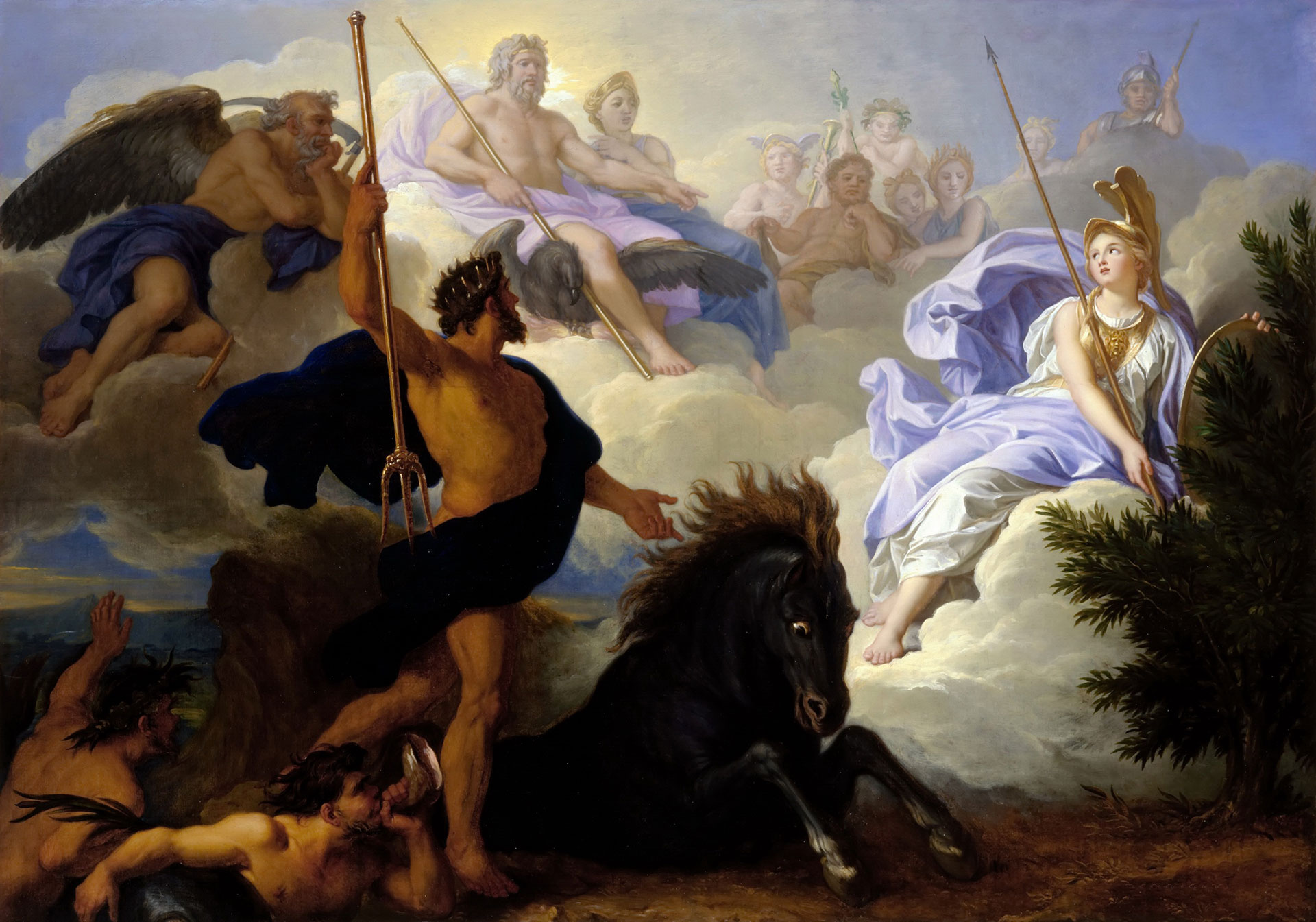Prologue
…
When I look at the stars, I can see a marvelous world that has been beautifully designed by a Creator. How can I know more about him? My human mind is limited, and can only understand from what I observe and think. I can’t have access to deeper knowledge of God, unless it was revealed to me.
Human knowledge can be acquired either through observation & reasoning, or, through someone who reveals it to you.
Aristotle (384 – 322 BC), a Greek philosopher, knew that God exists because he could logically think that nature must have a 1st cause that is uncaused 1.
But since he was born before the coming of Jesus, he would never be able to explicitly know that God is a Trinity, which is a revealed knowledge.
A language is a revealed knowledge: you can’t really deduce by logic how to translate a certain word.
So through reasoning, we can know that there’s a God who created the world. But, it’s only though revelation that we can know that God is 1 in 3 persons.
God the Trinity
Christianity
In Christianity, the Holy Trinity is 1 being (God), in 3 persons (Father, Son, Holy Spirit).

Father
Son
Holy Spirit
| Being | Person |
| What you are | Who you are |
I (the author), am 1 being, in 1 person. God is 1 being, in 3 person.
So 1 ‘what’, but in 3 ‘who’. All the 3 persons are God, sharing the same substance, but are all distinctive people. It’s like a family: dad, mom, and the child are all human beings but are very distinct people. That’s not a contradiction! If I was to say, God is…
A close analogy would be one family, but three persons (dad, mom, child). They form a whole family together while maintaining a difference between them.
Pagan gods

The pagan gods struggle with staying in harmony: they make wars, conflict against each other, cheat, they fight for ranking, etc. they needed sacrifices to feed and protect their worshipers.
God in Christianity, on the other hand, is an eternal covenant family. All three binds together: they are in perfect harmony. God is self-sufficient. He doesn’t need anything more. He created us out of love.
God of Israel
The God of Israel is very unique and distinctive.
God is one
Contrary to the pagan nations like the Greeks, Romans, Egyptians, Babylonians (polytheists), Israel was strictly monotheistic, and the belief didn’t evolve with time:
- giant temples for many gods requires a lot of work and can’t be moved out, Israel was a nomadic tribe and don’t have time to build many if they were polytheistic
- no feminine Hebrew word for God
- Israel doesn’t synchronize Yahweh with other gods (refuse to adapt)
- Yahweh has no need (self-sufficient)
- a statue cannot represent Yahweh
- God has no theogony (no beginning), so God is eternal
Jews have a daily prayer called the “Shema“, which serves as a centerpiece of the morning & evening Jewish prayer services.
“Hear O Israel, the Lord our God, the Lord is one.”
Deuteronomy 6:4
The Hebrew word for ‘one’ on that passage (depending on your Bible translation) is ‘echad‘ 2.
Jews are strictly monotheistic. There can’t be another deity than the one true God. However, in Genesis, there’s a fascinating passage that lets us dig much more in-depth in God’s identity.
God has set Himself as the sole standard of perfection, goodness, and morality, and demands that Israel acts as a sort. Of course, that’s not humanly possible.
Yet, is also ‘many’
Edith Hamilton (classicist) argues that the Greeks made their polytheistic gods in their image3. But Israel is completely different.
“Then God said: Let us make human beings in our image, after our likeness.”
Genesis 1:26
As we see there, the word “God said” is in singular. But few words later, the plural word “us” & “our” are mentioned. Huh, interesting isn’t? So it seems like there’s a plurality in a singularity.
Jesus & God the Father
In the Gospel of John, it seems that Jesus tells us that the Father is greater than Him.
“(…) for the Father is greater than I.”
John 14:28
Isn’t God the Father, the Son and the Holy Spirit , supposed to be equal?
The answer is: they share the same substance, but play a different role.
Example: A CEO of a company is superior in the rank compared to an employee, but he isn’t more human the his employee. In fact, they share the same humanity.
God the Father has a different role, but isn’t more divine than the Son.
While the pagan gods have ranking, the 3 are equal.
False alternatives
There’s many heretical views of the Holy Trinity that was developed through time.
Arianism: God the Father and God the Son are of different but similar substances – that the Son is created and subordinated under the Father. Arius and Eusebius of Nicomedia would say that the Father and Son were of “like substance” but not the “same substance.” Jehovah witnesses are Arians.
Binitarianism: Father and Son are God, but Holy Spirit is not.
Christomonism: similar to Sabellianism, for it tends to place the Son as God per se. The Father and the Spirit become abstractions. There are certain brands of Protestant Pentecostalism that endorse this or imply this distinction.
Eunomianism: a form of radical Arianism also called Anomoeanism or Heterousianism. This heresy states that the Father created the Son, and the Son in turn created the Spirit. The Eunomians explicitly denied that the three Persons were alike at all in substance.
Mormonism: a belief coming from the 1800s that synthesizes Eunomianism with polytheism. Mormons hold that Father is Elohim and the Son is Jehovah, but neither are eternal. Both were once humans before becoming divine, thus setting the example whereby other men can become gods. Faithful Mormons, they claim, can also become gods one day and give birth to more gods within their own created universe.
Quadinity: says that there are four gods or four persons in God. Some cults virtually deify their leaders, thereby inserting him or her into the Godhead. Such cults do not usually explicitly teach a Quadinity.
Sabellianism: teaches that there is one God and that He wears three masks: Father, Son, and Holy Spirit. Hence there are not three divine persons (Catholic) but one God who dresses up as three identities.
Subordinationism: like Arianism and Eunomianism this subordinates the Son to the Father. Origen, while he held that Christ was consubstantial with the Father did seem to also subordinate Christ to the Father. The Catholic Church holds that Christ is both consubstantial and equal.
Tritheism: belief in three gods. This error holds that the Father is a unique god, the Son is a unique god, and the Holy Spirit is a unique god. The Catholic Church teaches that there is one divine ousia/substance/essence and three Divine Persons (note: ousia and substance and essence can be used interchangeably in this context).
Unitarianism: believe that there is only one God in one Person – God the Father. The most well-known Unitarians are Moslems!
Orthodoxy
| God | Father | Son | Holy Spirit |
| 1 God, 3 persons, same substance | God | God | God |
Heresies
| Heresy | God | Father | Son | Holy Spirit | Believers |
| Arianism | God | created by the Father | Jehovah’s Witness | ||
| Binitarianism | 1 God, 2 persons | God | God | not God | |
| Christomonism | |||||
| Eunomianism | Creator | created by the Father | created by the Son | ||
| Mormonism | Mormon | ||||
| Quadinity | 4 Gods / 4 persons | God | God | God | |
| Sabellianism | 1 God in 3 masks | ||||
| Subordinationism | |||||
| Tritheism | 3 Gods | God | God | God | |
| Unitarianism | 1 God, 1 person | God | not God | not God | Unitarian, Moslem |
Recommended books
- …
- Aristotle, “The Metaphysics”, Penguin Classics, Book #12 (Lambda)
- Nabeel Qureshi, “No God but one: Allah or Jesus? A former Muslim investigates the evidence for Islam & Christianity”, (ZONDERVAN REFLECTIVE, 2016), 67
- Edith Hamilton, “Mythology: timeless tales of gods and heroes (Anniversary edition, Sept. 2017)”, (Hachette Book Group, 1942), 3